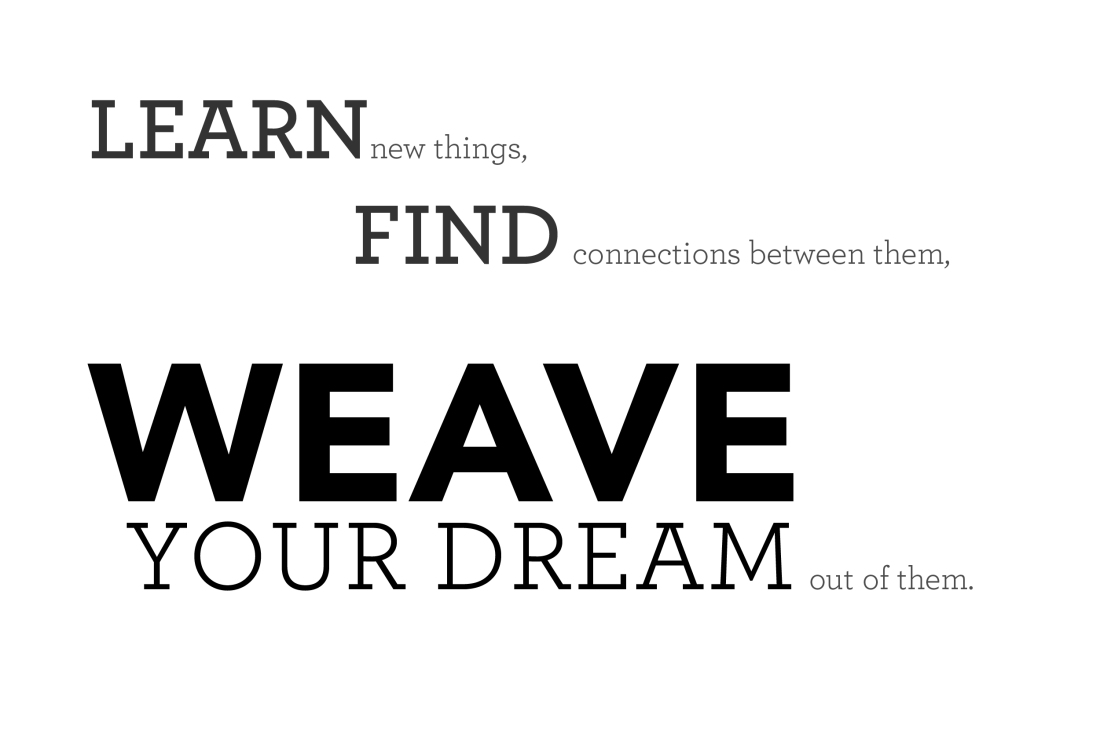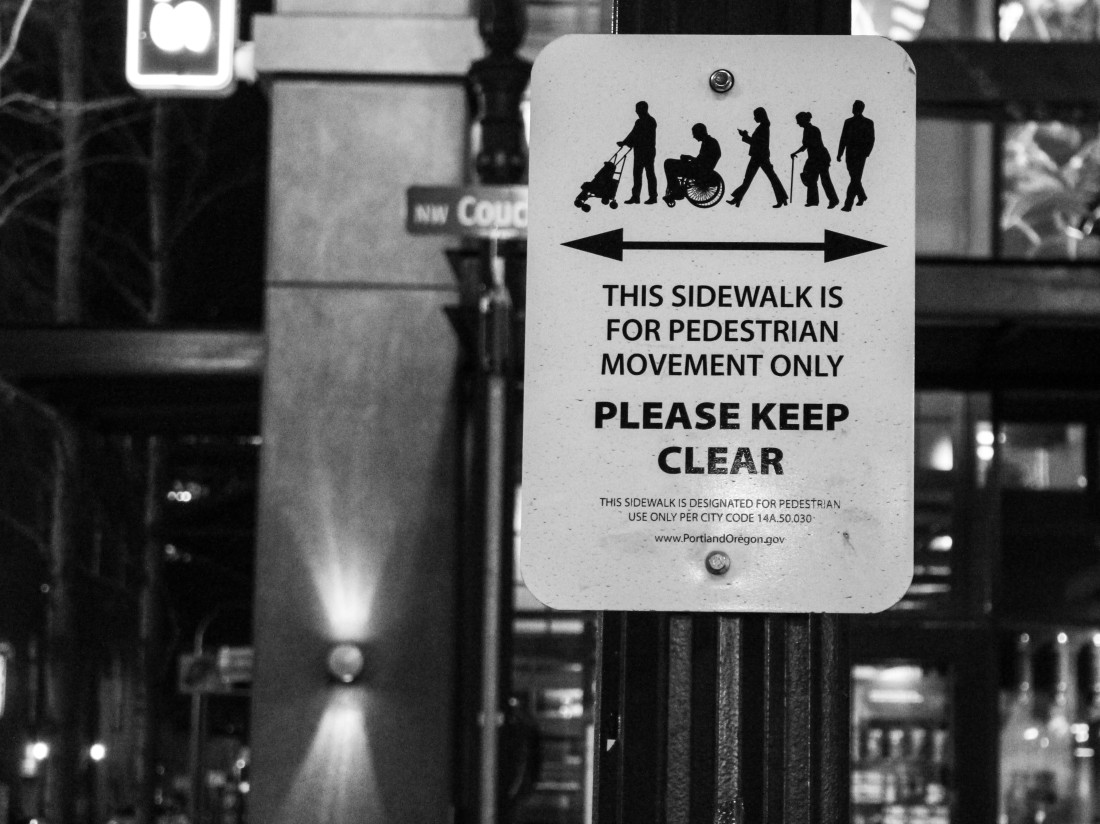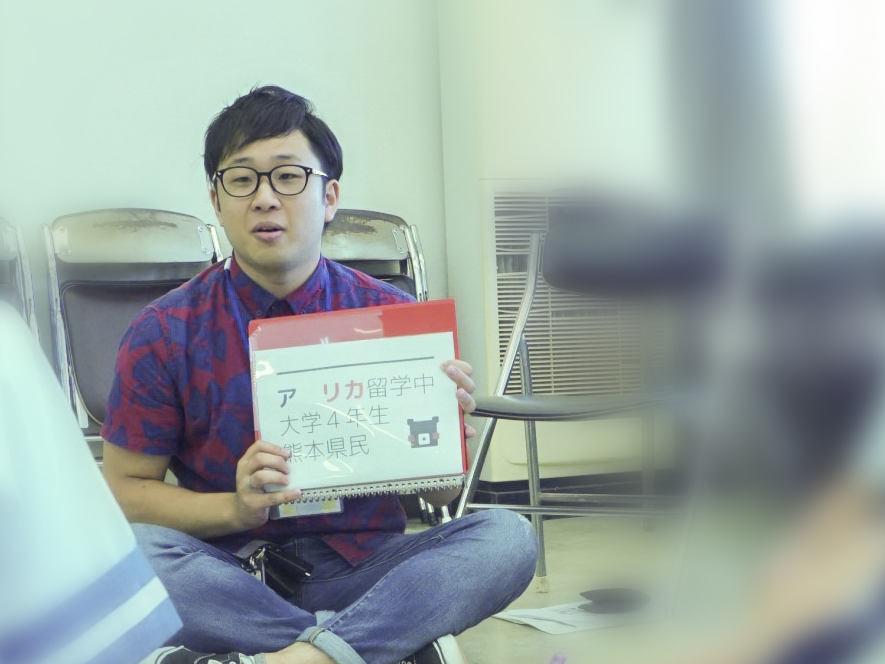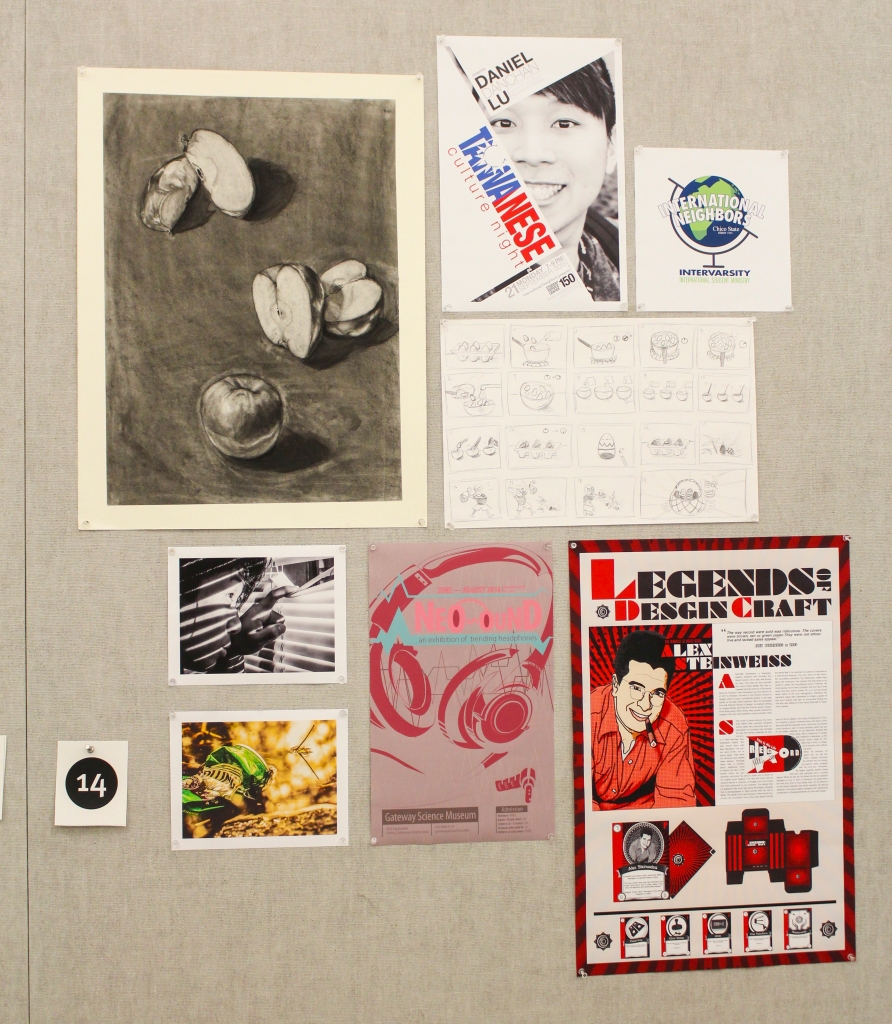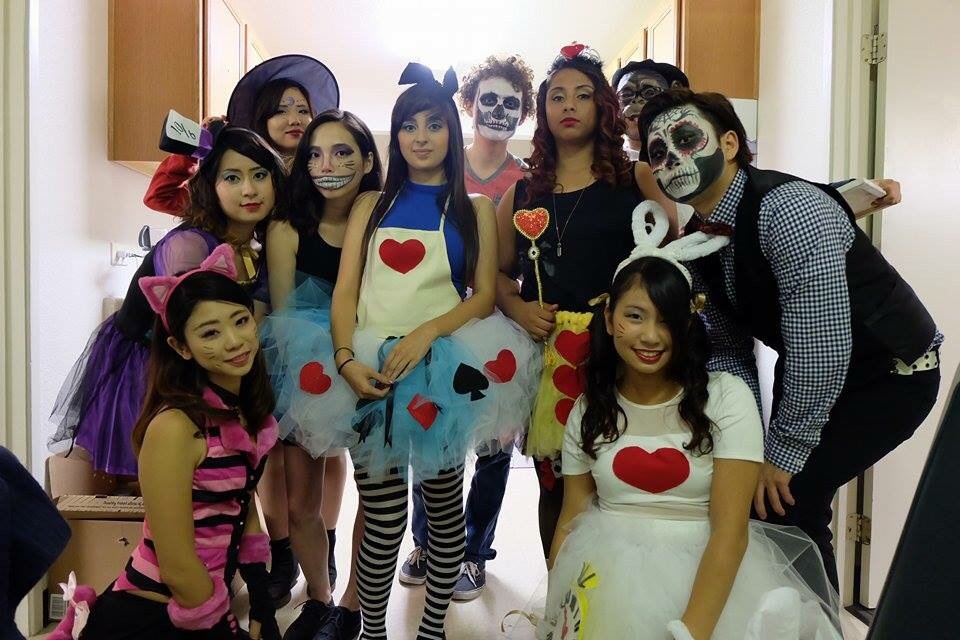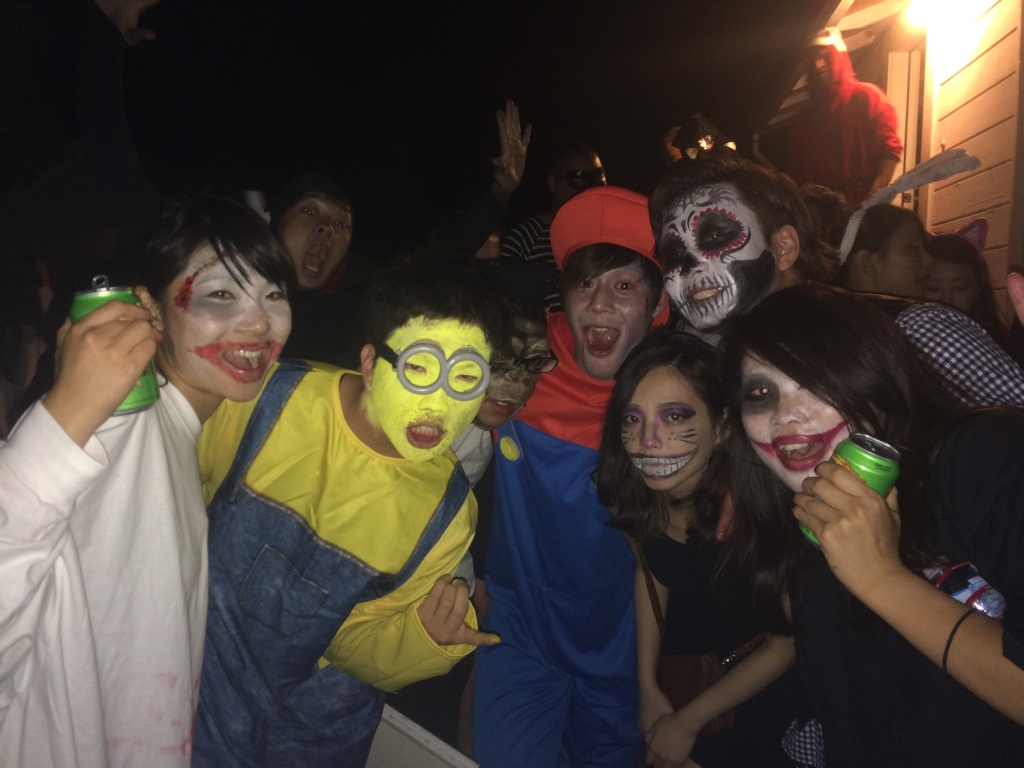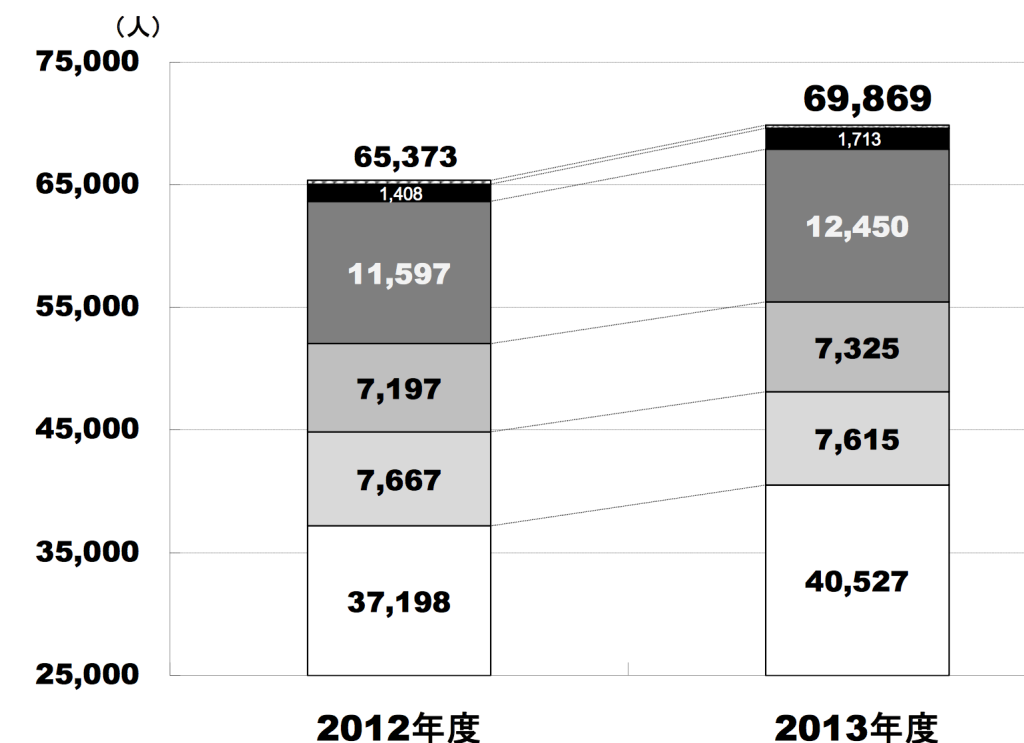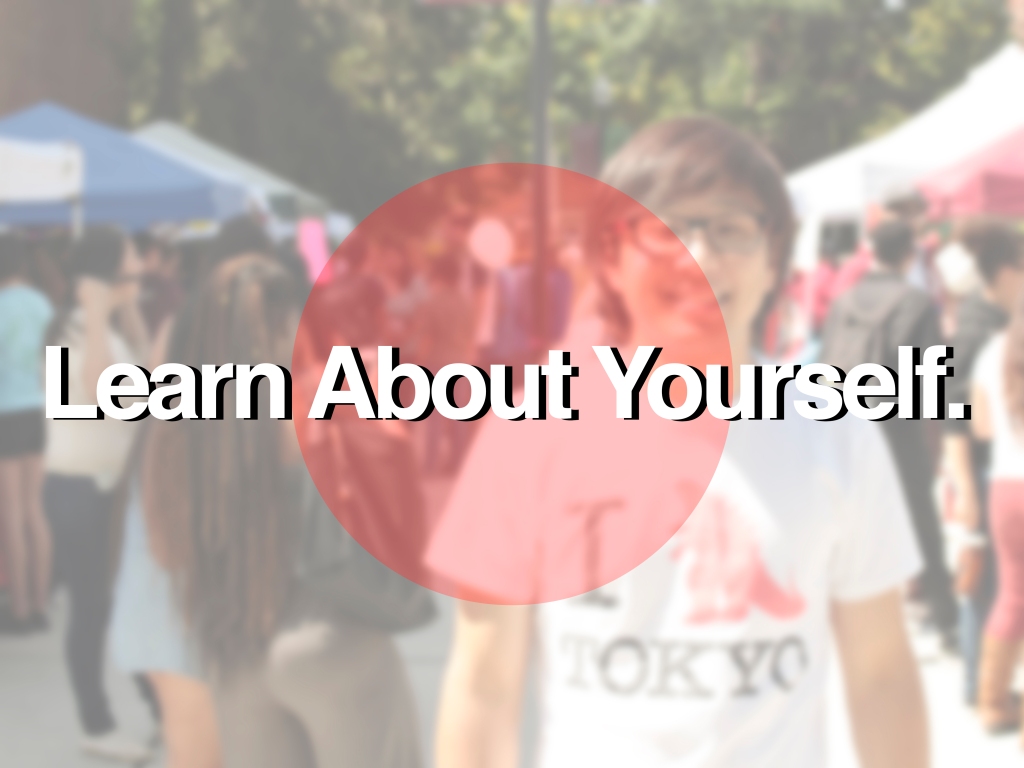So in the last post, I summarized all of the goals that I would like to accomplish by the age of 30. Taking only the headings and put them into a list looks like this:
1 — Enjoying working
1.1 — Designing everything
1.2 — Working collaboratively
1.3 — Learning by designing
1.4 — Sharing the concept of design
1.5 — Experimenting with typography2 — Establishing a base
2.1 — Defining where to live
2.2 — Eating healthy
2.3 — Building a home library3 — Developing rich relationships
3.1 — Finding design (but not limited to) peers
3.2 — Being a mentor to somebody
It was very curious for me to realize these items on the list look very similar to the famous Maslow’s Hierarchy of Needs.
1 — Maslow’s Hierarchy of Needs
This image was taken from google search.
So above, there is a diagram of the Hierarchy of Needs.

I personally modified this content into a format that is suitable for what I was doing: trying to figure out lower-level or actionable goals in order to achieve those higher-level goals that I summarized last time.
A series of diagrams that I am going to use for this exercise is not really optimized for viewing on the web. I put the link to the pdf version of this diagrams at the beginning and end of this blog post. So please feel free to download and review it.
There are three major types of needs: Basic, psychological, and fulfillment. The lower level needs essentially support the existences of those higher level needs by removing any concerns regarding those basic needs from a person’s mind.
2 — My Hierarchy of Needs
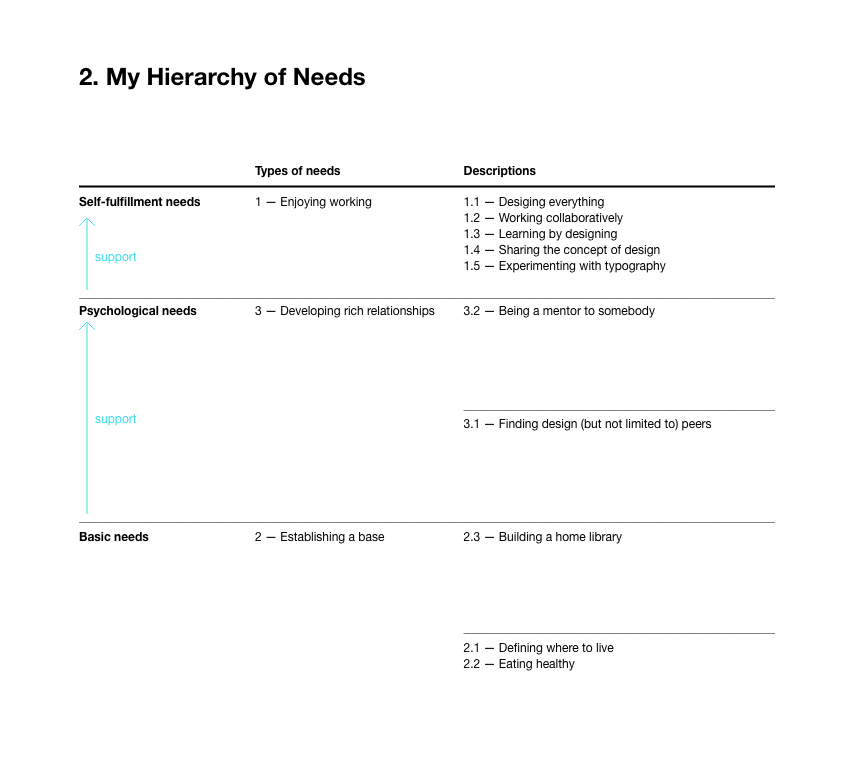
By replacing the types of needs goes under the three major need types and their descriptions with the list I made in the last post, I was able to visualize how I am perceiving my goals psychologically.
I intentionally kept the list numbers that I used in the last post. Notice that the order of the higher-level goals does not quite much with Maslow’s diagram, suggesting that there is a different prioritizing rules in my mind. Apparently, self-fulfillment need, which is to enjoy working, ranks the highest priority, while basic needs and psychological needs are the second and third highest respectively.
This analysis implies that no matter how satisfied I may be with basic and psychological needs in the future, it is impossible for me to just be 100% happy with my life without fulfilling the self-actualization necessities.
3 — My Hierarchy of Needs in Timeline

This is where things get interesting. I was seeking a way to figure out which of the high level goals I should be focusing on first because what Maslow’s diagram suggests to me is that without satisfying the lower, basic needs of my own, it is unlikely that I will be able to concentrate on the higher level needs or goals.
By rotating the diagram of my hierarchy of needs 90 degrees towards right, it, in fact, became a timeline!
By refining the layout and typography of this new time-based model slightly, it looks like this:
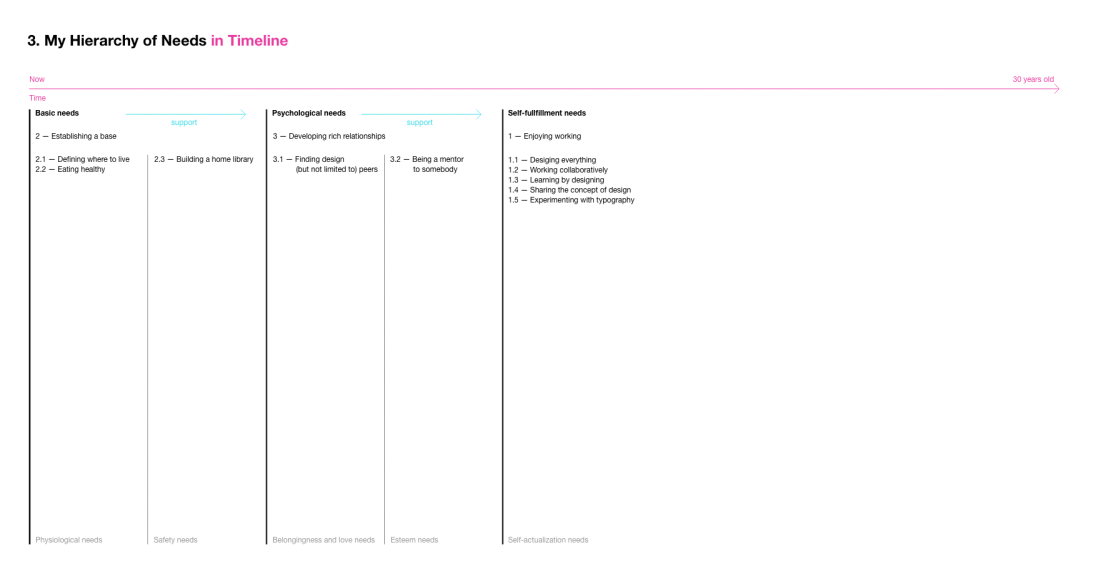
I was attempting to proportionally scale the timeline in this one. This is mainly because there are only 7 years until I become 30, but with this overall gestalt of the diagram, it could imply that I may be spending my first few years on satisfying only basic and psychological necessities, which can possibly be true, but not totally accurate.
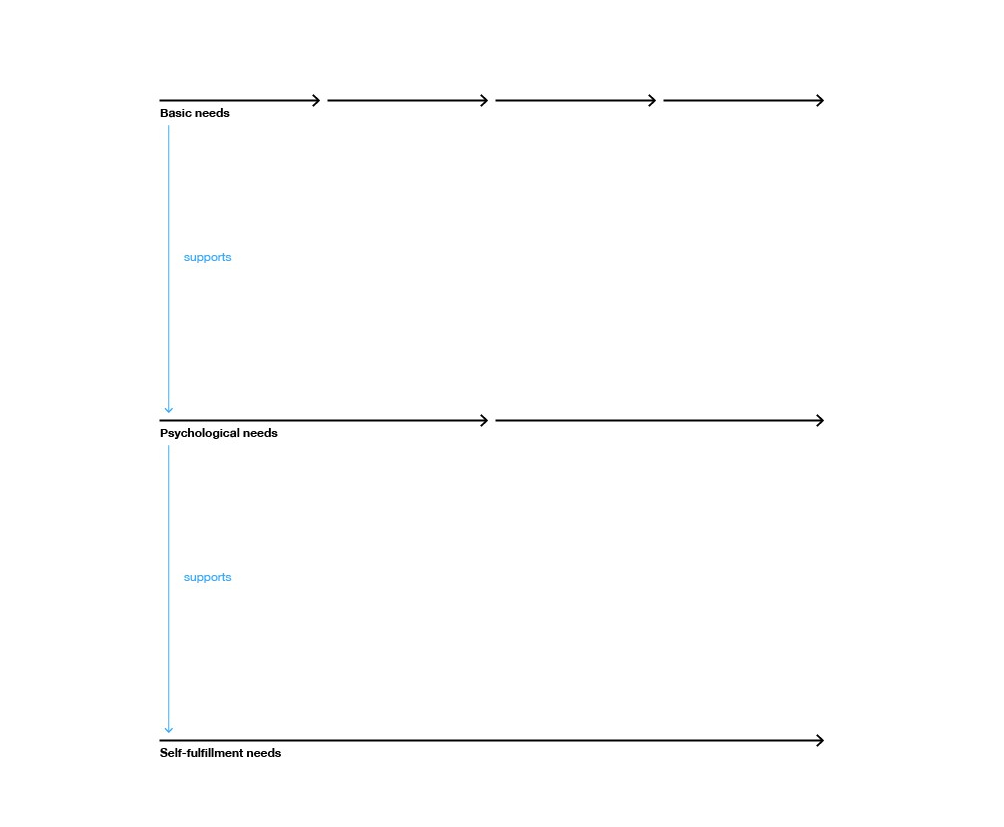
Going back to the original diagram by Maslow, the boundaries between each level of needs are actually more ambiguous and loose than clear and rigid, which essentially means that those hierarchical needs often overlap and interact with each other. They concurrently coexist, but their individual time span differ.
So the point here is that this framework that I completely made up is very useful in determining priorities among many personal goals and a general timeframe for achieving them. However, it is not as helpful in figuring out details steps necessary for those high level goals by itself. Although I mentioned the crucial limitation of this exercise, I found it okay because there is not much practical value planning step by step actions that will be carried out in the future.
No one knows what exactly would happen in the future anyway.
4 — A new summary of my high level (+ low level) goals
Now that I have discovered which of the high level goals should be named first. I briefly went over the summary and added some low level tasks and actions that may be required by the high level goals. The new summary should look like this:
1 (2) — Establishing a base
1.1 (2.1) — Defining where to live
1.1.1 — Moving back to Japan
1.1.2 — Defining which city or prefecture I want to live
1.1.3 — Looking for a job (that cares about and practices design) or start one
1.1.4 — Finding a place to live that fits my needs (commuting time, price, space plan, etc.)
1.1.5 — Purchasing furniture
1.2 (2.2) — Eating healthy
1.2.1 — Buying kitchen equipment
1.2.2 — Finding a good local market
1.2.3 — Establishing a cooking routine
1.2.4 — Discovering and learning new recipes
1.3 (2.3) — Building a home library
1.3.1 — Taking back all of the books that I have currently to Japan
1.3.2 — Allocating a room for work and books
1.3.3 — Buying or building a nice bookshelf
1.3.4 — Researching good books to read all the time
1.3.5 — Finding a cheap way to import books in English to Japan
2 (3) — Developing rich relationships
2.1 (3.1) — Finding design (but not limited to) peers
2.1.1 — Working for a firm that employs design practitioners
2.1.2 — Actively networking
2.1.3 — Creating opportunities to collaborate with new people on various projects
2.1.4 — Expanding my network not only in japan but also overseas
2.2 (3.2) — Being a mentor to somebody
2.2.1 — Constantly working on projects solving socio-economic and business problems
2.2.2 — Increasing a visibility online
2.2.3 — Acquiring a master degree in design (?)
2.2.4 — Preparing useful learning materials
2.2.5 — Leading and managing a product and services that requires a team
3 (1) — Enjoying working
3.1 (1.1) — Designing everything
3.1.1 — Taking every project as a design project
3.1.2 — Clearly defining an area of my speciality in design
3.1.3 — Learning design theories and knowledge of related fields
3.2 (1.2) — Working collaboratively
3.2.1 — Effectively utilizing human resources as well as my network
3.2.2 — Developing a fluency in other areas of professions
3.2.3 — Developing skills in facilitating conversations
3.2.4 — Being open-minded
3.2.5 — Leading and managing a product and services that requires a team
3.3 (1.3) — Learning by designing
3.3.1 — Learning design theories and knowledge of related fields + programming
3.3.2 — Leading and managing a product and services that requires a team
3.3.3 — Asking lots of questions when working with others
3.3.4 — Documenting my learning
3.3.5 — Being open-minded
3.4 (1.4)— Sharing the concept of design
3.4.1 — Keeping sharing thoughts on design online
3.4.2 — Talking about the value of design to non-design practitioners
3.4.3 — Leading and managing a product and services that requires a team
3.5 (1.5) — Experimenting with typography
3.5.1 — Keeping polishing and learning typographic theories and skills
3.5.2 — Always applying a careful typographic treatments to anything I make
3.5.3 — Appreciating and learning typography in history
3.5.4 — Purchasing books on type
3.5.5 — Learning typography in Japan
5 — Final thoughts
In determining the lower-level tasks, I realized one thing: my self-fulfillment goals are too abstract and talks only about things that I want to learn about design. Thus, it lacks a notion of what I want to do with it. In some other parts of the list, I mentioned solving socio-economic problems, which I think implies something.
So I thought of them:
- Redesign education and learning systems
- Design a sustainable system that bridges a gap between Japan’s local economy and global economy
- Greatly simplify any required legal, social, financial, and medical processes that people need to go through
- Understand, visualize, and explain many systems that embrace a negative feedback loop
- Learn and document histories
- Design a place where people can come and work on their personal projects and collaborate with others


